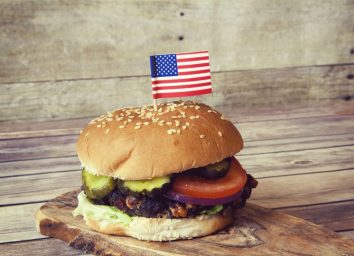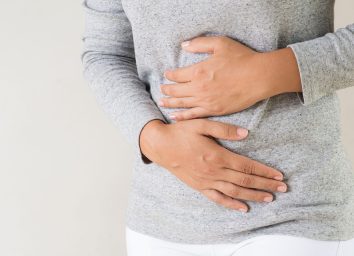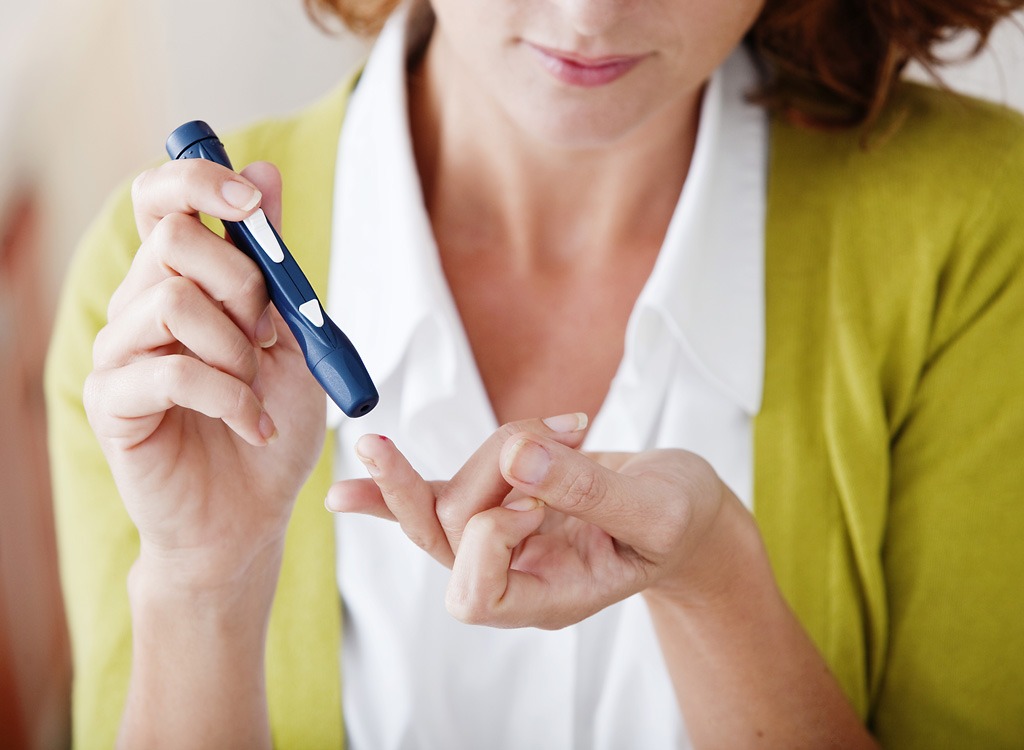
Will you have to give up carb-laden pizza? It’s a question that many people ask—whether they’re looking to lose 10 pounds or they’ve recently been diagnosed with diabetes.
You see, although nearly 30 million Americans—about 1 in 11 people—have diabetes, and 86 million people—more than 1 in 3 adults—have prediabetes, many myths and misconceptions continue to swirl around the metabolic disease.
According to research in the Zero Sugar Diet, diabetics are up to four times more likely than people without diabetes to die of heart disease or experience a life-threatening stroke. Currently, diabetes is the seventh leading cause of death in the United States. And for those who don’t properly control their condition, the odds of health issues—which range from cardiovascular issues to nerve damage and kidney failure—increases exponentially.
Besides those who are unaware they have prediabetes or diabetes, even those who receive a diagnosis are often left scratching their heads when it comes to improving their health. But rather than looking at self-management as an unfortunate burden of your diagnosis, Lori Zanini, RD, CDE and author of the recently published Eat What You Love Diabetes Cookbook, says the fact that diabetes is a condition that is largely self-managed can be empowering; It allows you to play a key role in your treatment.
In honor of National Diabetes Awareness Month, we tapped Elizabeth Snyder, a registered dietician and certified diabetes educator at The Ohio State University Wexner Medical Center for her expert advice to dispel the top myths surrounding treating diabetes. Pick up some knowledge and then continue to improve your life by ditching these harmful habits: the 50 Little Things Making You Fatter and Fatter.
If You Have Diabetes, It’ll Be Obvious by Your Symptoms
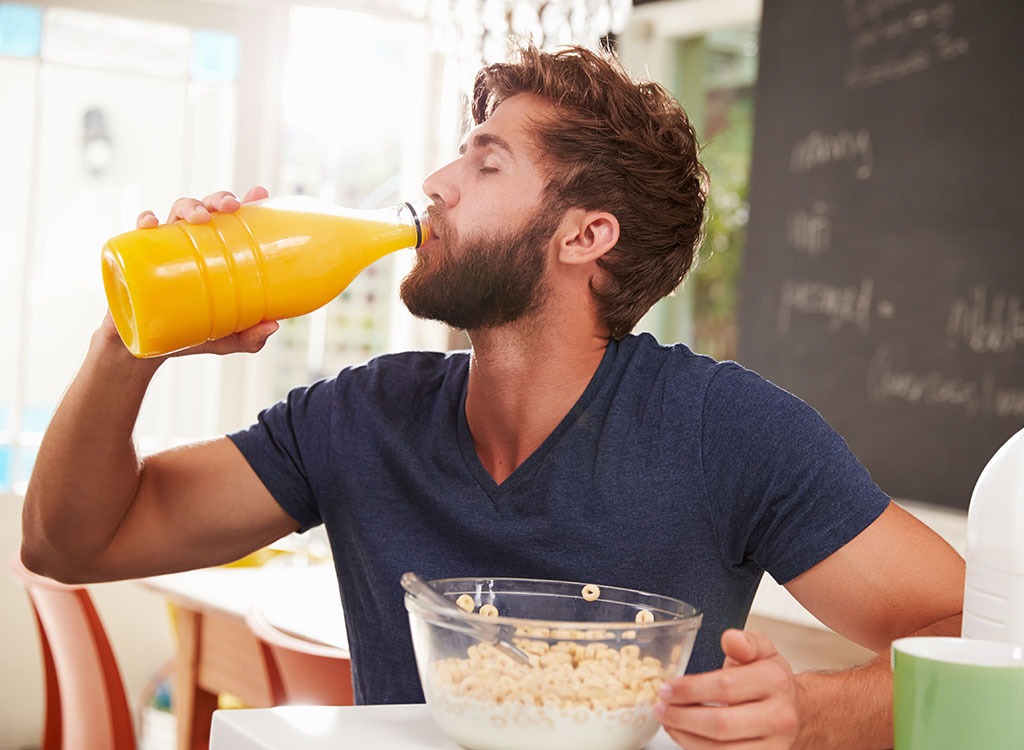
As we mentioned earlier, 9 in 10 people—77 million Americans—with prediabetes have no idea they have it. Furthermore, the CDC reports that 1 out of every 4 people with diabetes—an estimated 8 million people—have no idea they’re living with the disease.
That’s partially because the symptoms of type 2 diabetes—such as increased urination and thirst, dry mouth, unusual fatigue, and blurred vision—are easily looked over or attributed to other problems. Low blood sugar—which you can easily associate with being hangry—can trigger irritability, dizziness, shakiness, and lack of coordination. It’s hard for your body to tell if this is a normal reaction or a physical disease, especially since these symptoms will slowly develop over the course of several years. Even if you think it’s nothing, try talking to your doctor if you’re experiencing any of these symptoms. A simple blood test can elucidate what’s going on in your body.
You Need to Cut Out Carbs Completely
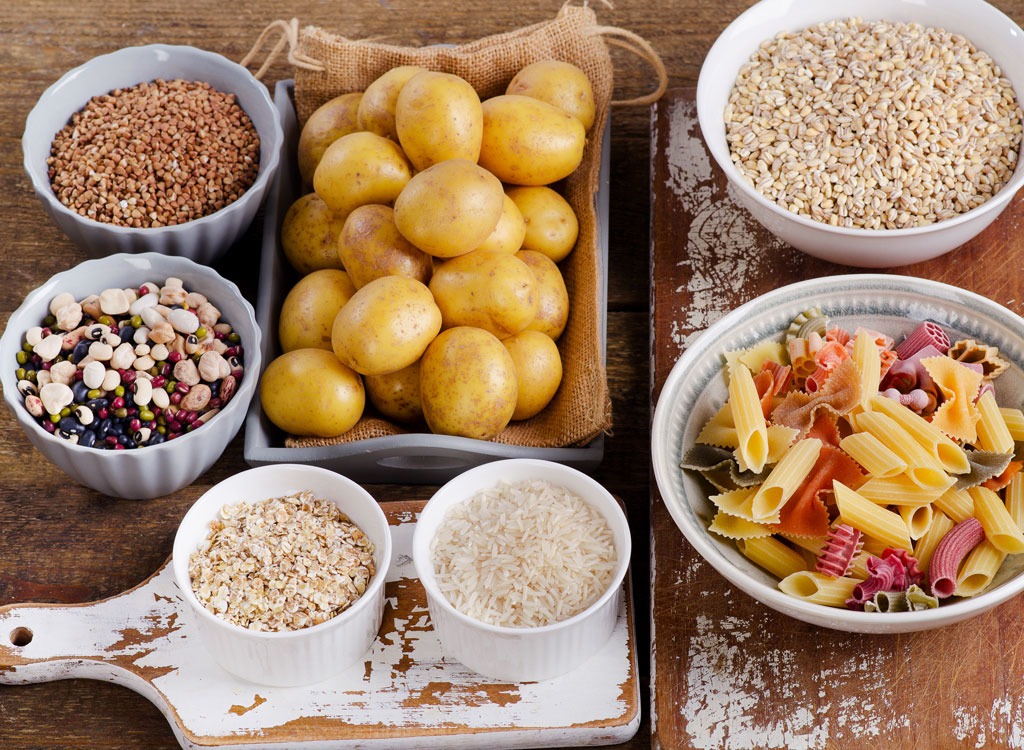
This myth stems from the fact that all carbs turn into sugar, or “glucose,” in your blood. Because diabetics have trouble regulating their blood sugar levels, people may assume that cutting out carbs completely will solve all diabetes-related problems. On the contrary, they may raise more problems because sugar is “the main energy source for our brain and body,” according to Synder.
Not to mention, carbs are the exclusive source of the digestion-slowing macronutrient, fiber, in our diet; Studies have connected high fiber diets to good gut health, a lower risk of metabolic diseases, and better regulation of body weight. In fact, multiple organizations, like the Physicians Committee for Responsible Medicine, encourage their health care providers to prescribe a whole-food, plant-based diet to their patients.
Eat This! Tip:
Snyder says that it’s not eating carbs that’s a problem for diabetics, “the trouble lies in eating more carbohydrates than we need, as the body will choose to store any extra energy as fat.” So, instead of cutting out carbs, focus on what type of carbs you’re eating. Snyder recommends filling up ¼ of your plate with complex carbs, i.e. whole grains, fresh fruit, and starchy veggies that are packed with vitamins, minerals, and blood-sugar-managing fiber. On the other hand, reduce your intake of the worst carbs in America: refined carbs.
You Can Keep Your Blood Sugar from Spiking by Skipping Meals
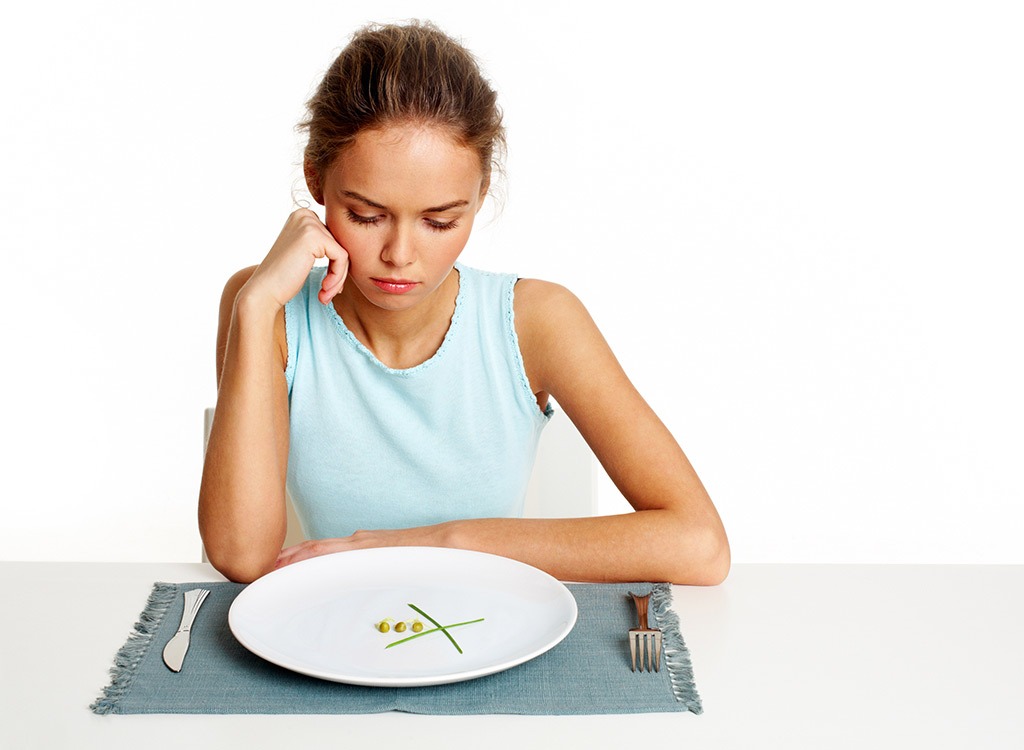
Although the theory behind this myth is that if you’re not eating, you’re not consuming any carbs or sugar to spike your blood sugar, there’s more going on in your body behind the scenes. In fact, according to Zanini, “This habit will work against you and could lower your metabolic rate, which would actually make it more challenging to lose weight” (which is one of the best treatments for diabetes). When you skip meals, your body goes into a state of starvation. As a result, your body will start delving into its sugar stores—known as glycogen stores—and your blood sugar could actually rise as a result.
Sugar-free Foods Won’t Raise Blood Sugar, So You Can Eat as Much as You Please
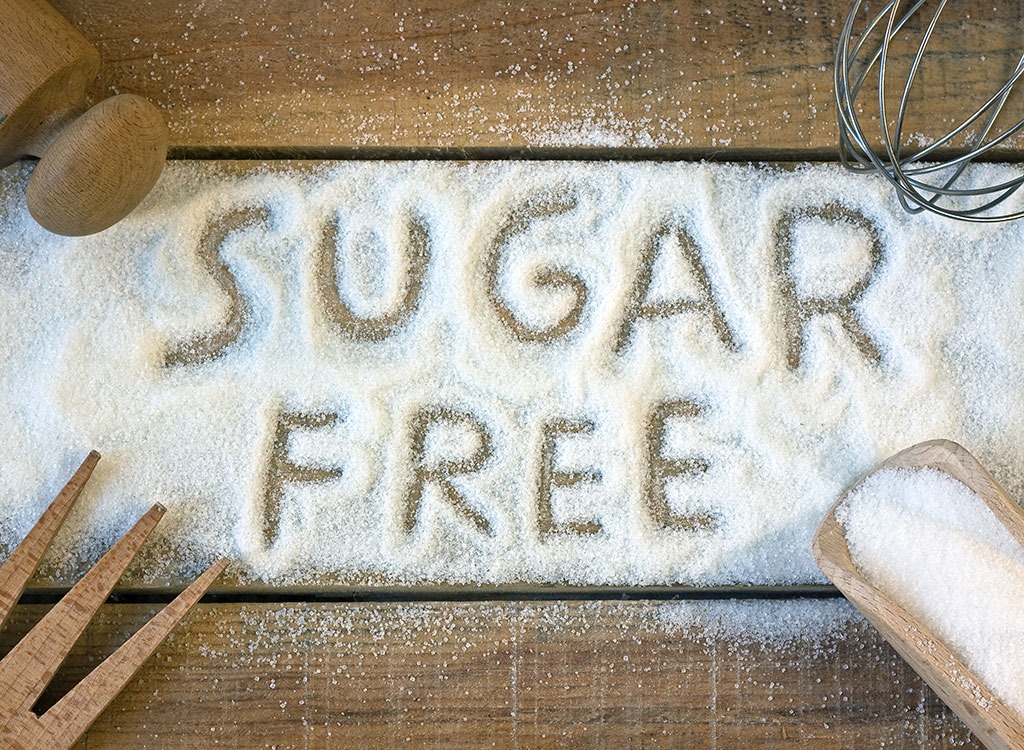
Sure, your diet ice cream has “Sugar Free” plastered all over it, but that doesn’t mean you have free reign to delve in without restraint. While, yes, zero-calorie natural sweeteners, artificial sweeteners, and sugar alcohols do not affect blood sugar, don’t be misled into believing sugar is the only nutrient that will raise your blood glucose levels. Snyder tells us that “all carbohydrates turn to sugar in the blood,” so you should always scope out the “Total Carbohydrates” line on a food label to see how many carbs you’re eating. (Looking for more tips on how to tackle the back of the box? Be sure to check out these 20 Ultimate TIps for Finally Understanding Nutrition Labels.)
Snyder points out that another issue with sugar-free foods “is that the label can often mislead us to believe they are healthier than they are and cause us to eat more than our usual portion size,” which can spell out disaster for our belly fat. She explains, “Often times, they have the same number of calories as the regular item.”
Green Vegetables Will Lower Blood Sugar
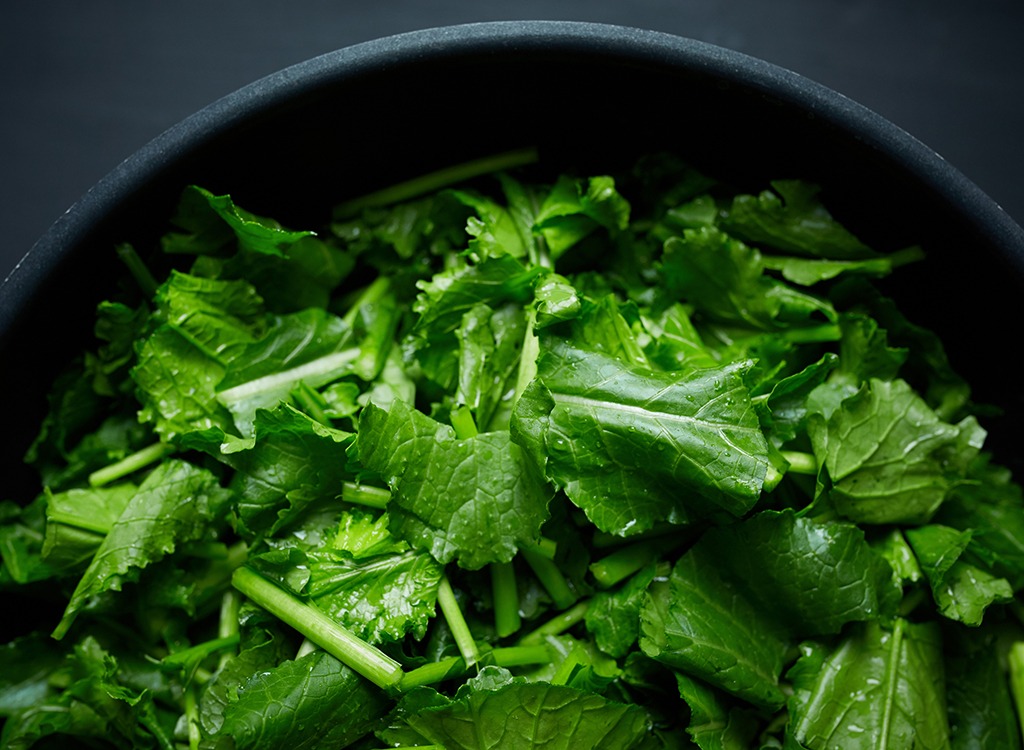
Yes, leafy greens are certainly healthy and filled with digestion-slowing fiber, but Snyder says green vegetables won’t bring down blood sugar on their own. You’ll also have to eat a balanced diet, exercise regularly, and take prescribed medications.
Eating Gluten-free Will Cure Diabetes
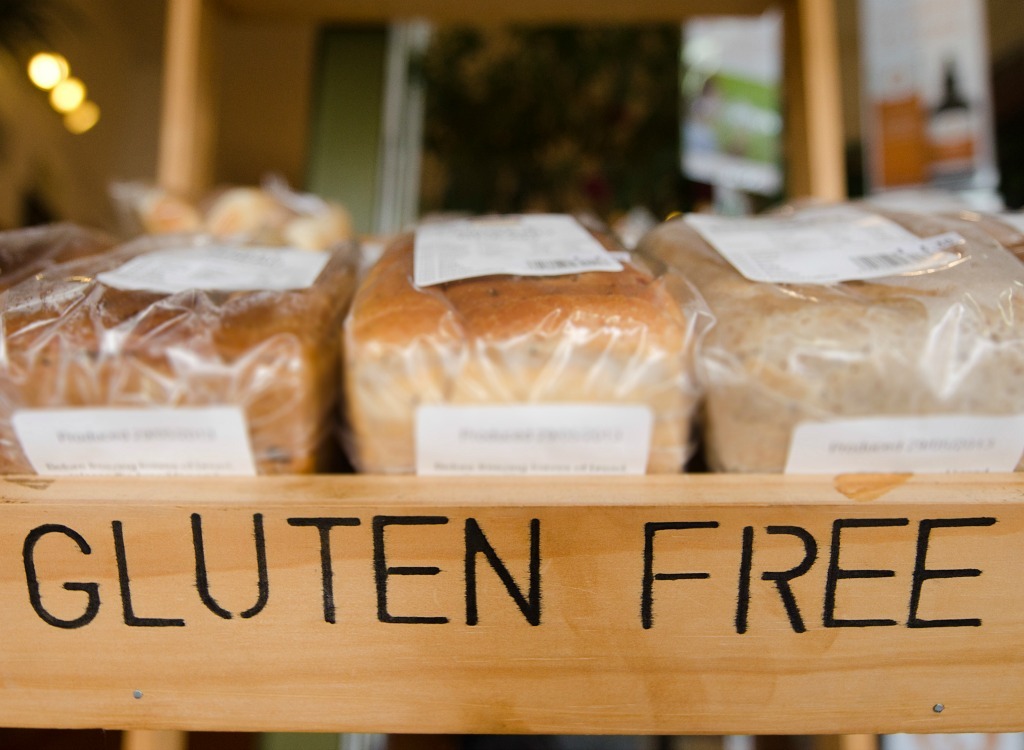
Just because people with the autoimmune disorder celiac disease have to eat gluten-free to stay healthy, it doesn’t mean eating gluten-free is always the healthiest option. And that’s especially the case for diabetics. Snyder explains that because the gluten protein provides elasticity and volume in baked goods, often times “gluten-free foods are actually denser and, therefore, will have more carbohydrates per serving [than conventional foods].”
It’s Possible to “cleanse Away” Diabetes with Detoxes or Supplements
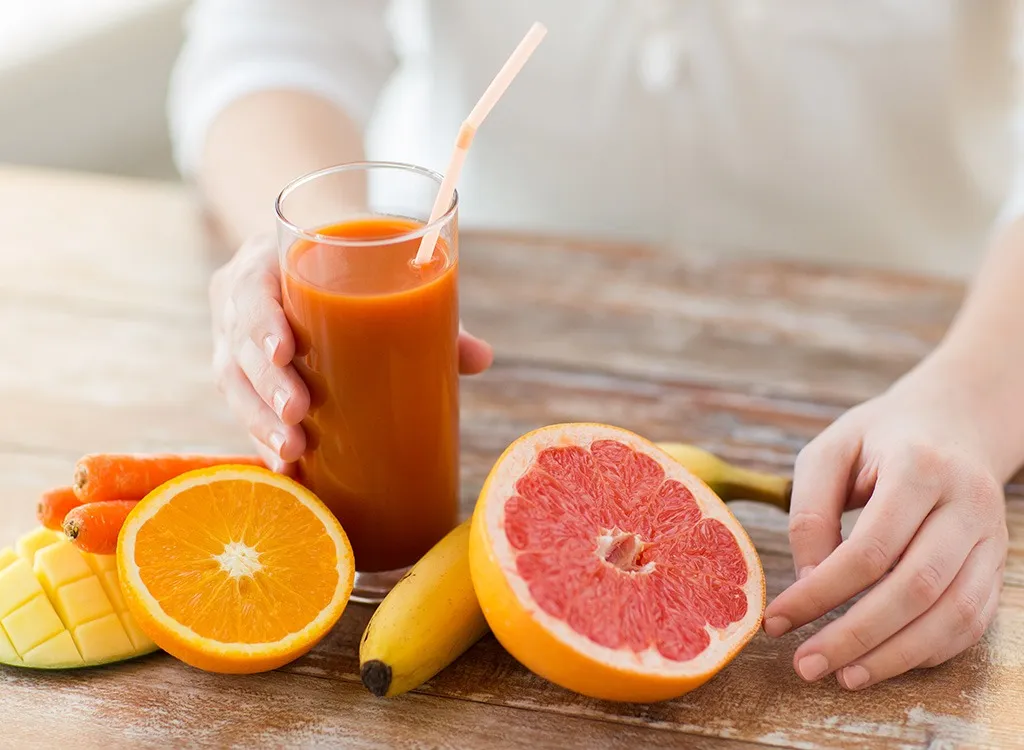
“There is no cure-all diabetes cleanse. If there was, type 2 diabetes wouldn’t exist,” Snyder tells us. She said she’s heard of patients trying everything from drinking vinegar to eating citrus. Studies have even found that patients with diabetes are more likely to use dietary supplements and herbal therapies than people without diabetes, according to the American Diabetes Association. And while it’s tempting to fall prey to marketing claims that a supplement will act as a “magic bullet,” Snyder says the best way to cleanse your body is by consuming more digestion-slowing fiber.
Eat This! Tip:
It’s best to stick with well-researched medicine that’s been prescribed by your doctor. Because herbal supplements are not regulated by the FDA, Snyder says it’s difficult to know what exactly is in each tablet. Instead of spending your grocery store dollars on supplements that lack substantial research to prove they work, she recommends shelling out the cash on healthy foods since “we know the positive impact of a healthy diet.”
You Should Only Eat a Small Amount of Starchy Foods with Every Meal

This shouldn’t come as a shock, but the nutritional needs of each person “vary widely depending on their weight, gender, age, and pregnancy status,” explains Snyder. Additionally, depending on the amount of fiber, healthy fats, and protein you’re pairing with your meal, your body could digest the carbs on your plate much slower than it would if you ate the carbs alone. In fact, a recent study presented by Tufts University researchers at the American Heart Association’s 2016 annual meeting found that eating protein- and fat-rich tuna fish (one of the 29 Best-Ever Proteins for Weight Loss) with a slice of white bread produced a slower rise in blood sugar than eating carbs alone.
Eat This! Tip:
Snyder says that “in general, adult, non-pregnant women should eat 30-45 grams per meal, and men should consume 45-60 grams per meal. You can also include 1-2 snacks daily with about 15 grams of carbs.” If you’re not quite sure what works for you, it’s always best to consult your healthcare professional.
You Shouldn’t Exercise with Diabetes Because it Increases Your Chances of Experiencing Low Blood Sugar

Just because you have diabetes doesn’t mean you should stop pumping iron! In fact, countless long-term studies have found that exercise is one of the best treatments for diabetes, and it “can actually help the body use blood sugar more efficiently for up to 24 hours after you’ve completed the activity,” explains Snyder. A study published in the New England Journal of Medicine found that among prediabetics, those who were prescribed a goal of 7 percent reduction in body weight and at least 150 minutes of exercise a week reduced their incidence of diabetes by 58 percent while a drug only reduced it by 31 percent.
Some people, as correctly mentioned in the myth, have to watch out for low blood sugar or hypoglycemia. Because your body uses up energy (via carbs) during exercise, working out can easily plummet your blood glucose levels. Combined with taking insulin or an insulin-increasing medicine, this could spell out severely decreased levels. Low blood sugar symptoms include feeling sweaty, dizzy, or having a fast heartbeat. If you experience any of these symptoms on a regular basis, Snyder recommends you work with your doctor or diabetes educator to determine if your medicine can be reduced in anticipation of your activity.
If You Sprinkle Cinnamon on Food You Can Eat Anything
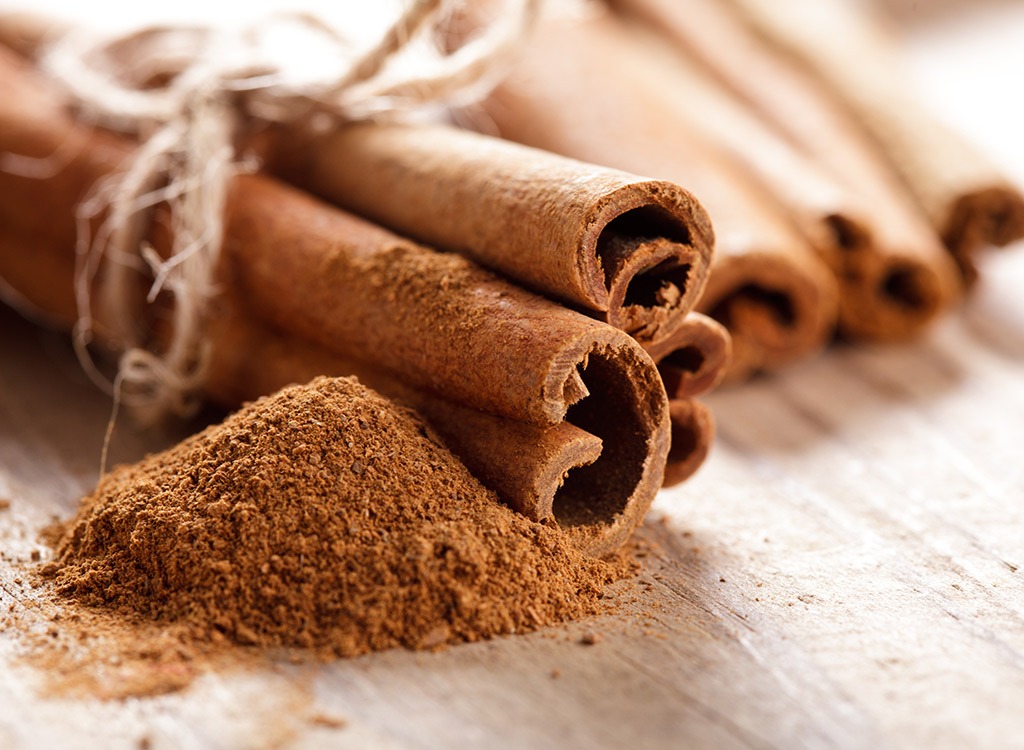
This odd myth actually has some scientific backing: A series of studies printed in the American Journal of Clinical Nutrition discovered that adding a heaping teaspoon of cinnamon to a starchy meal like overnight oats could help stabilize blood sugar and ward off insulin spikes. Experts believe that the spice’s powerful antioxidants, known as polyphenols, are at work; these active compounds have been proven to improve insulin sensitivity and, in turn, your body’s ability to store fat and manage hunger cues.
But don’t rely on cinnamon as a magic cure-all. Just because it could help your body regulate blood sugar doesn’t mean you can sprinkle it on your food and eat with abandon. Plus, Snyder reminds us that believing that a food is healthier than it is (like what could be the case if you think cinnamon negates any negative blood sugar effects) “may influence how many and how often a food item is eaten.” And if you think your bowl of ice cream is healthy because you covered it in cinnamon, you’re seriously mistaken.
You Have to Lose a Lot of Weight for Your Diabetes to Improve
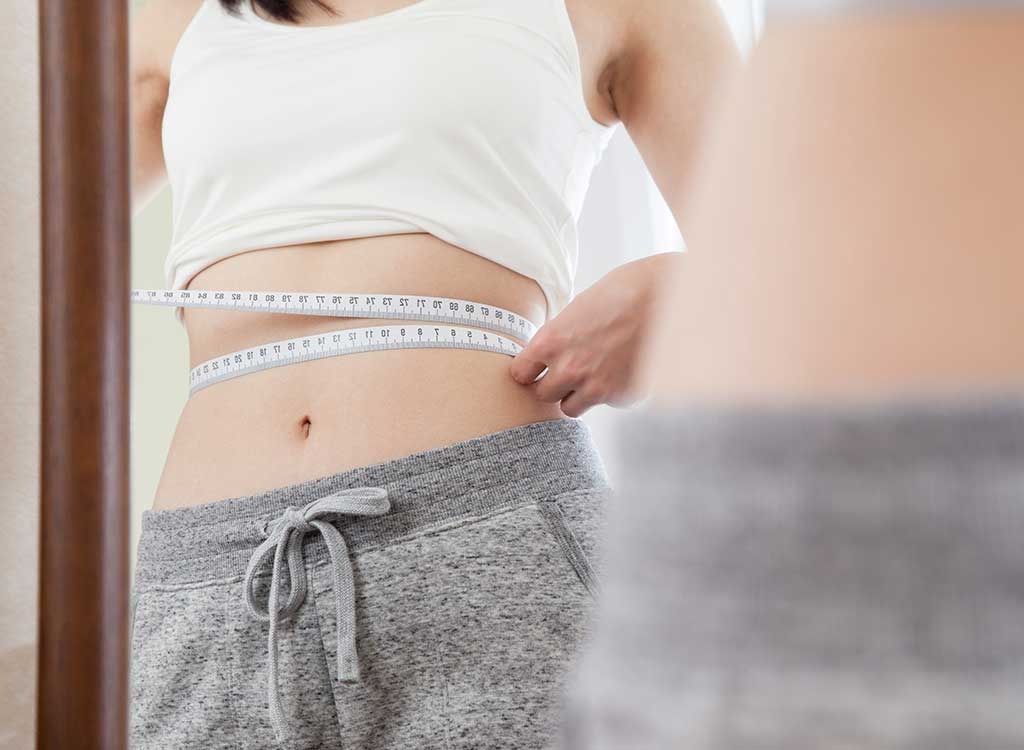
It’s all subjective, but if you ask us, we’d probably say losing 50 pounds was a lot. As it turns out, Snyder says you’d only have to lose 7 percent of your body weight (if you’re overweight) to see significant health benefits. For example, if you weigh 200 pounds, you’d only have to lose 14 pounds! Combined with other healthy habits such as, “eating the right amount of carbohydrates at every meal, being as active as possible (250 minutes per week), and taking diabetes medicine as prescribed,” Snyder says your diabetes may eventually be able to be managed without medicine. (Remember, always consult your physician before going off any medication.)
You Can No Longer Eat Your Favorite Foods
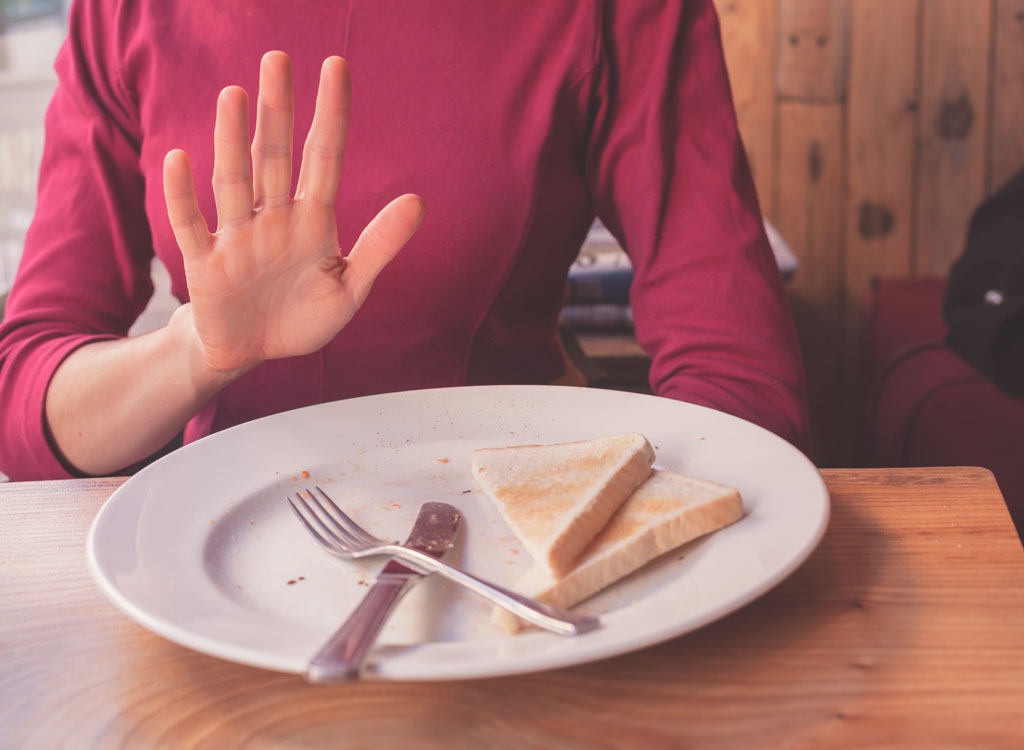
According to Zanini, one of the most common questions asked at a patient’s first appointment was “Can I still eat my favorite foods?” Her answer? Yes! Just make sure you focus on portion size and frequency. To get some of the best tips on how to eat and cook if you have diabetes, check out these 15 tips.
Fruit is Healthy, So You Don’t Have to Limit Eating it
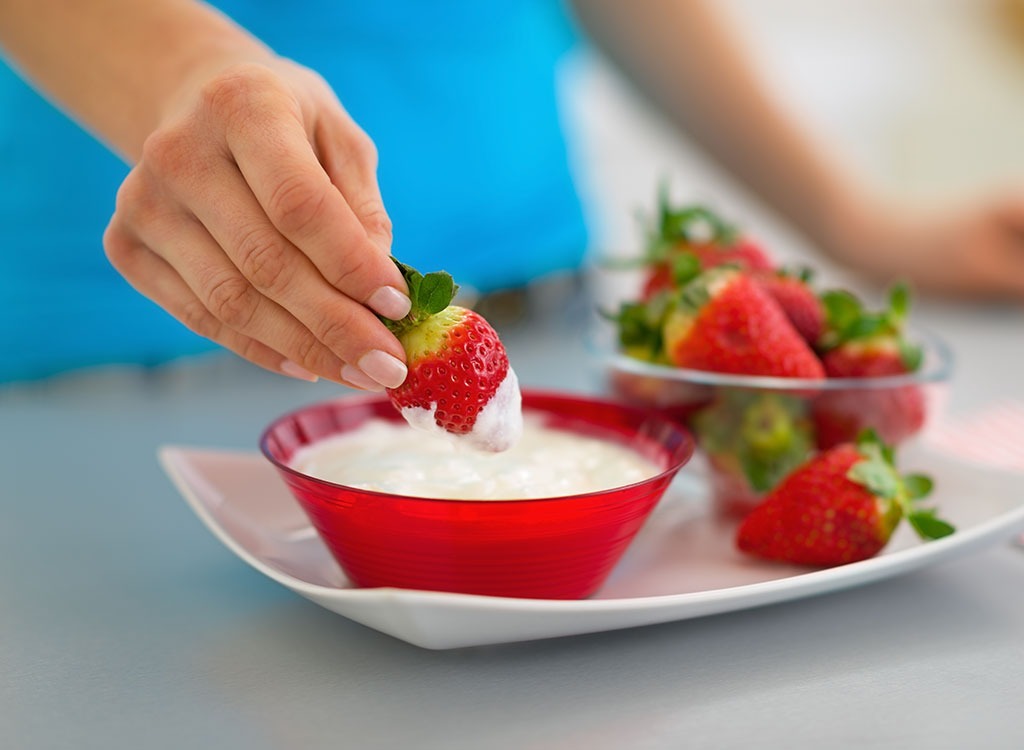
You’re right, fruit is healthy! It’s often full of cancer-protective antioxidants, vitamins, minerals, digestion-supporting fiber, and hydrating water. While there are many benefits of eating fruit, “we still want to be mindful of how much fruit we’re eating because it does contain sugar,” explains Isabel Smith, MS, RD, CDN, founder of Isabel Smith Nutrition and New York City-based celebrity dietitian. Because fruits still contain carbs and sugars—and some more than others—you have to be weary of how much you’re eating at a time. To help you, we’ve ranked 25 Popular Fruits By Sugar Content to see which sweet foods you’ll need to eat smaller portions of!
Because You Take Medicine, it Means You Don’t Have to Make Any Lifestyle Changes

Often people think that once their disease is ameliorated by medicine, they can continue living life as they did before. But don’t let your medicine or insulin be a safety blanket. Consider making serious lifestyle changes upon your diagnosis. Talk to a dietician to discuss coming up with a diabetes-friendly diet (and be sure to check out Zanini’s diabetes cookbook!) and exercise regularly as both of these actions have been found to be effective in treating diabetes.

